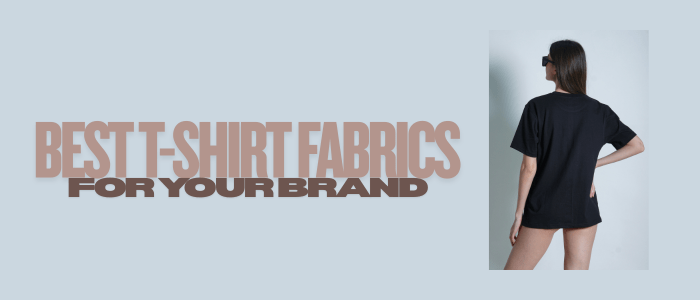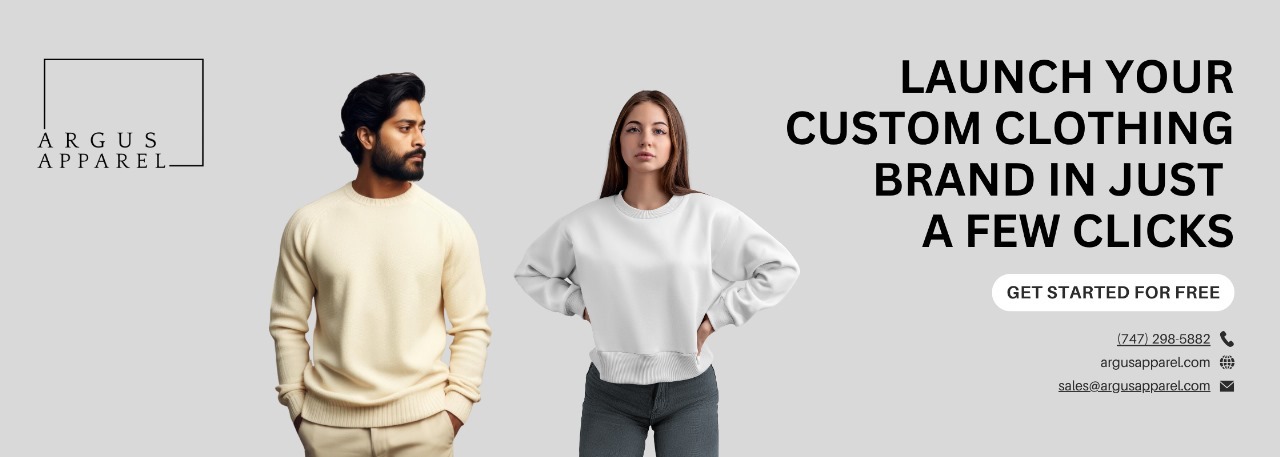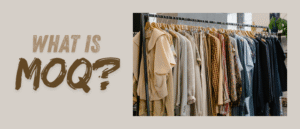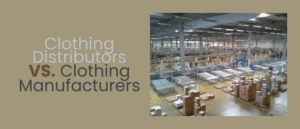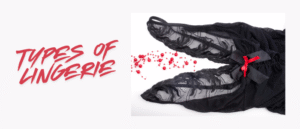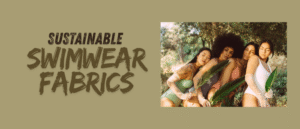When you’re building a fashion brand, every detail counts, but nothing shapes your t-shirt line more than fabric choice. The fabric not only defines how a t-shirt feels on the skin, but also influences durability, cost, and how your brand is perceived in the market. Customers often remember comfort and quality long after purchase, which makes fabric a silent ambassador for your brand identity.
When you’re shaping your brand’s identity, T-shirt fabrics choice is more than aesthetic, it’s a cornerstone of customer satisfaction. In fact, a recent study found that 72% of apparel shoppers say comfort is their top concern when selecting clothing. A t-shirt’s feel, durability, and eco-credentials can turn first-time buyers into loyal supporters.
At Argus Apparel, we work closely with startups, indie designers, and e-commerce businesses to simplify the process of choosing the right t-shirt fabrics. From basic cotton to sustainable blends, our team helps you navigate textile options that balance creativity, comfort, and long-term value.
Why T-Shirt Fabrics Choice Matters
Selecting the right T-shirt fabrics is one of the most important decisions you’ll make when building your apparel line. T-shirt fabrics is not just about softness, it’s a direct reflection of your brand promise and shapes how customers perceive, wear, and value your products. A well-chosen T-shirt fabrics can turn a simple t-shirt into a wardrobe staple, while the wrong choice can lead to poor reviews, high returns, and lost brand loyalty.
Here are the key reasons why fabric matters so much for apparel brands:
Fit & Feel
Customers expect comfort. A soft, breathable T-shirt fabrics that drapes well on the body creates a positive first impression and increases the likelihood of repeat purchases. The tactile experience often determines whether a customer wears your tee once—or repeatedly.
Longevity & Durability
Quality fabrics resist shrinkage, fading, and pilling, meaning your t-shirts look newer for longer. For your brand, this results in fewer complaints, better reviews, and stronger customer trust.
Printing & Branding Performance
The t-shirt fabrics surface affects how well your graphics, logos, and embroidery sit on the garment. Smooth cotton holds detailed prints beautifully, while blends or technical fabrics may require special printing techniques. Choosing the right base ensures your designs look professional and aligned with your brand image.
Cost & Profitability
T-shirt fabrics selection directly impacts your production budget. Basic cotton offers affordability for bulk runs, while premium or sustainable options come at a higher cost—but allow for premium pricing. Finding the right balance between cost and value is key to maintaining healthy margins.
Sustainability & Brand Reputation
Today’s consumers are highly eco-conscious. Fabrics like organic cotton, recycled blends, or bamboo not only reduce environmental impact but also strengthen your brand’s story. A commitment to sustainable textiles positions your label as forward-thinking and socially responsible.
Also check out: Custom T-Shirt Manufacturing
Types of T-Shirt Fabrics to Know
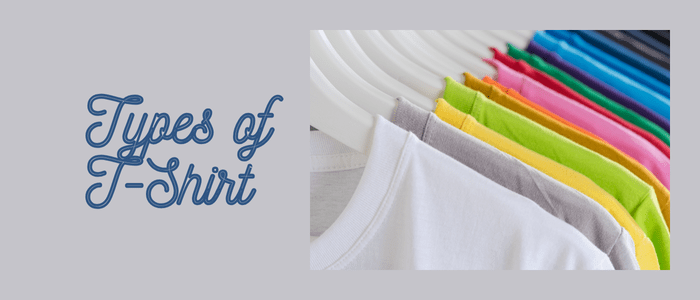
Here’s a breakdown of the most common (and most effective) t-shirt materials for apparel brands:
1. Basic & Affordable Cotton
Cotton is a go-to fabric for t-shirts because of its natural comfort and versatility.
- Open-End Cotton: Coarser, budget-friendly, often used in bulk promotional tees.
- Combed Cotton: Fibers are combed for softness and durability.
- Ring-Spun Cotton: Stronger and softer due to twisted yarns, offering a higher-quality finish.
Pros: Breathable, comfortable, cost-effective.
Cons: Prone to shrinkage and wrinkles.
Best for: Startups launching affordable basics or bulk collections.
2. Premium Cotton
For brands that want luxury-level quality, premium cotton types elevate the product experience.
- Pima Cotton: Extra-long fibers create softness, durability, and color retention.
- Supima Cotton (U.S. grown): Stronger and finer than standard cotton, offering a smooth finish.
Pros: Ultra-soft, long-lasting, fade resistant.
Cons: Higher cost compared to regular cotton.
Best for: Premium fashion labels and upscale e-commerce brands.
3. Sustainable Options
Eco-friendly fabrics are increasingly important for brands that value sustainability and responsible production.
- Organic Cotton: Grown without pesticides—safe for the skin and planet.
- Recycled Cotton: Reduces waste by reusing discarded fibers.
- Bamboo Fabric: Naturally soft, moisture-wicking, and biodegradable.
Pros: Strong eco appeal, great marketing value, comfortable wear.
Cons: Higher sourcing cost and sometimes limited availability.
Best for: Eco-conscious startups and brands targeting sustainable fashion.
4. Blends (Cotton + Polyester / Tri-Blends)
Blended fabrics combine the benefits of multiple fibers to create balance in comfort and function.
- Cotton + Polyester: Affordable, wrinkle-resistant, maintains shape.
- Tri-Blends (Cotton + Polyester + Rayon): Lightweight, stretchy, with a vintage look.
Pros: Durable, flexible, easy-care.
Cons: Less breathable compared to pure cotton.
Best for: Merch brands, casual fashion labels, and bulk runs needing long-lasting tees.
5. Performance Textiles
Designed for active lifestyles, performance fabrics are engineered for durability and function.
- Moisture-Wicking Polyester: Keeps wear cool and dry.
- Nylon Blends: Adds stretch and abrasion resistance.
- Technical Mixes: Ideal for sportswear and outdoor apparel.
Pros: Lightweight, fast-drying, strong for heavy use.
Cons: Less natural feel compared to cotton.
Best for: Activewear brands and sports merchandising.
6. Specialist Materials
For brands exploring unique textures and drapes, specialist fabrics stand out.
- Modal: Silky-soft, breathable, and drapes well.
- Viscose/Rayon: Smooth with a fluid drape, perfect for premium streetwear.
- Tri-Blend Luxury: Soft, fashion-forward with a lived-in feel.
Pros: Luxury touch, modern appeal, high drape.
Cons: Can be more expensive and delicate.
Best for: Fashion-forward designers and niche premium lines.
How to Choose the Right T-shirt Fabric for Your Brand
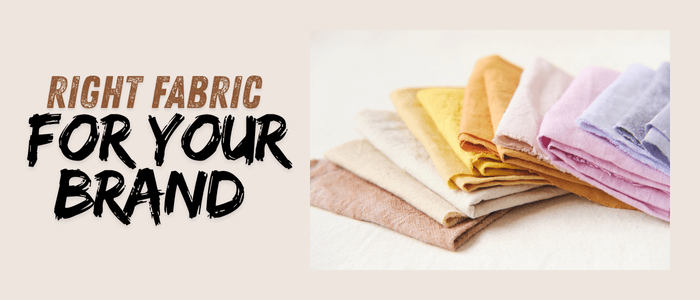
Selecting the best t-shirt fabrics isn’t just a technical decision, it’s a strategic move that impacts how customers perceive your brand, how much they’re willing to pay, and whether they’ll buy from you again. Your choice should align with your price point, target audience, and long-term goals. Here’s a more detailed framework to help you decide:
1. Price Point & Market Position
Your fabric choice sets the tone for your brand’s positioning in the market.
- Affordable Basics: Open-end or combed cotton works well for budget-friendly collections, promotional tees, or merch lines.
- Premium Lines: Pima and Supima cotton offer superior softness and durability, making them ideal for higher-end fashion or DTC brands that want to justify a premium price tag.
- Eco-Luxury: Organic cotton, bamboo, or modal fabrics appeal to customers willing to spend more on sustainability.
Note: Always calculate the balance between fabric cost and your planned retail price to protect margins.
2. Customer Demographics & Lifestyle
Who you’re designing for will strongly influence fabric choice.
- Eco-Conscious Millennials & Gen Z: Likely to prefer organic cotton, recycled blends, or bamboo.
- Athleisure & Activewear Fans: Expect performance fabrics like moisture-wicking polyester or technical blends.
- Streetwear Enthusiasts: May appreciate premium cotton or tri-blends for a soft, fashion-forward feel.
3. Printing & Branding Requirements
Not all fabrics hold designs equally well. If your line relies heavily on custom prints, fabric performance matters.
- Screen Printing & DTG (Direct-to-Garment): Works best on smooth cotton or ring-spun cotton.
- Sublimation Printing: Requires polyester or high-poly blends.
- Embroidery & Appliqué: Premium cotton or heavier blends hold structure better than lightweight fabrics.
Explore more: Types of Shirt Printing: Complete Guide for Custom Apparel Brands (2025)
4. Production Volume & Scalability
Fabric choice should also match your business stage and scalability plans.
- Small Runs / Testing Collections: Invest in slightly higher-quality fabrics to make a strong first impression.
- Bulk Production: Blends and open-end cotton provide cost efficiency without sacrificing durability.
- Scaling Brands: Consider working with a manufacturer like Argus Apparel to access custom blends and sustainable sourcing at larger volumes.
5. Startup-Friendly Tip
Before committing a bulk order, order fabric swatches and request fit samples. This ensures you can evaluate softness, shrinkage, print quality, and overall drape in real life. Many founders overlook this step and face costly revisions later. Testing upfront reduces risk and builds confidence in your final product.
Argus Apparel’s T-Shirt Fabrics Guidance & Support
At Argus Apparel, we simplify fabric selection so you can focus on brand growth. Our services include:
- Swatch Selection: Test fabric quality before full runs.
- Sustainable Options: Access organic, recycled, and eco-certified materials.
- Fit Samples: Ensure the right cut, drape, and sizing for your market.
- Custom Blends: Develop unique materials tailored to your vision.
- Scalable Support: From small-batch production to full-scale manufacturing.
Whether you’re creating basics or luxury tees, our team provides material expertise and production support tailored to startups and indie brands.
Contact Argus Apparel, a private label manufacturer, today to request fabric swatches and start building your brand’s next staple.
Conclusion
The fabric you choose defines the comfort, style, and identity of your t-shirt line. From affordable cotton to sustainable blends, understanding fabric types empowers you to make smarter decisions that resonate with your customers.
At Argus Apparel, we believe every brand deserves transparency, flexibility, and expert support when sourcing t-shirt fabrics. Whether you’re a first-time founder or an established label, our team is here to guide you.
Let’s match your design with the perfect fabric—Contact Argus Apparel today

